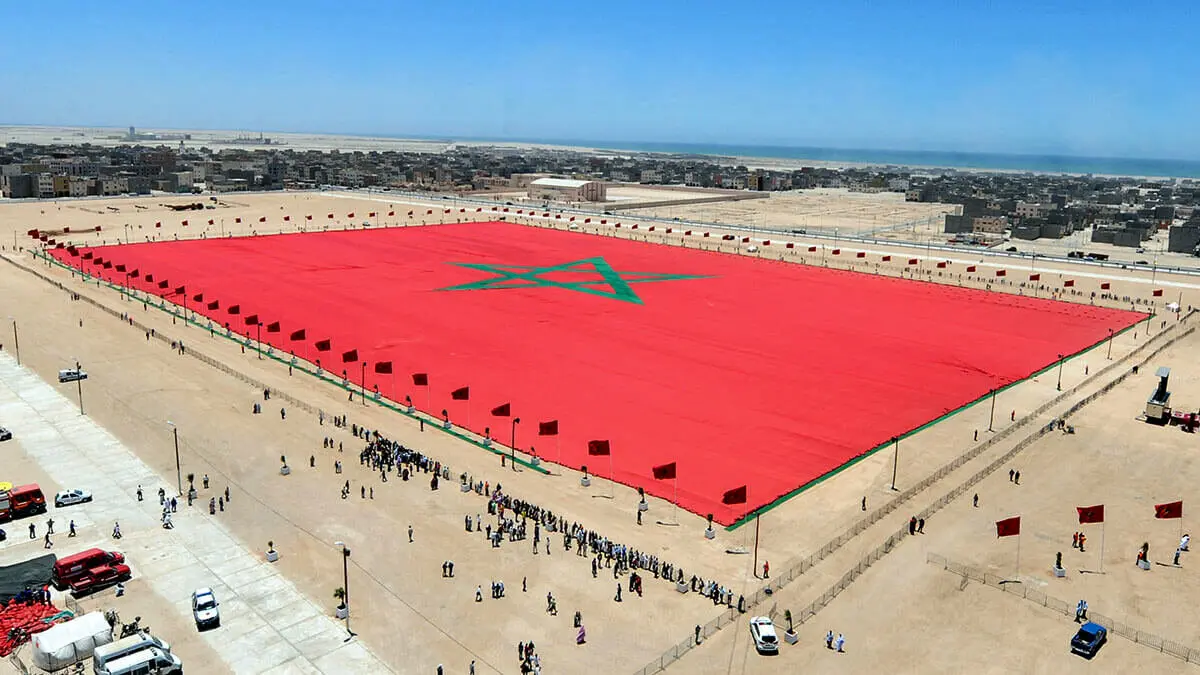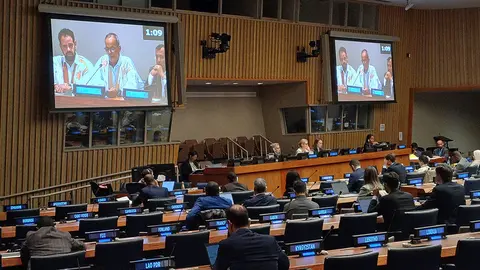Visas and lies: the reality behind the deportations in Dajla

He even had a visa approved by his country of origin, and he was a university professor with a long career and recognised prestige who had also entered the United States on numerous occasions, but even so. It's not nice to have to turn around after an eight or ten hour flight and get back on a plane to go back, but those are the rules of immigration control in every country, as respectable as ours or any other sovereign country.
Likewise, in the case of the United States, there are some eligibility questions to be answered before filling in the application, one of which is ‘Have you ever committed fraud or lied to obtain or help others obtain a visa or entry to the United States?’, and the final decision always lies with the official on duty that we come across. In short, there is one basic rule: we must not lie at any stage of this process, as we would be committing a serious immigration offence, which generally refers to the use and/or falsification of documentation or statements to circumvent immigration laws. By the way, this is not just a US problem, strict as they may be in these matters, it is something you will come across at customs in any country, including Morocco.
Having made the bureaucratic introduction, these days we have come across the umpteenth controversy over the expulsion from Dakhla, in the south of Morocco, of a journalist from the digital media Público and two activists from CEAS-Sáhara, that pro-Polisario shack first cousin of FEDISSAH. This artificial and self-serving controversy has grown more and more amplified as the days have gone by due to the campaign that the aforementioned digital media outlet is perpetrating, by way of propaganda, with more than a few publications and even a viral video full of manipulated data and historical inaccuracies.
This campaign has even been accompanied by a small television tour with the alleged victim as the protagonist on programmes such as Risto Mejide's, where she confessed and confirmed what anyone with the slightest bit of perspicacity could have guessed beforehand, that she lied at passport control on her arrival in Dajla. ‘If I say I'm a journalist, I don't get into the country,’ he said with a somewhat faltering voice in response to a question he might not have expected, ‘we decided that at the newspaper before leaving,’ he added. It is as we indicated before: the false representation or omission of facts to obtain an immigration benefit to which one might not be entitled, such as a valid visa. If the journalist goes with the intention of working, but hides his profession to avoid restrictions or specific requirements for journalists, it could be considered fraud, which is equal to automatic expulsion. There is no more, the whole story and subsequent campaign that has been mounted disappears if we start from that very basic premise.
Would he have been allowed to enter the country if he had said he was a journalist? We will never know because he did not do it and, I repeat, as he himself recognised, he lied when he entered and was expelled for it, no matter how much he wanted to sell other possible causes on his return. However, regarding the previous question, this journalist should perhaps know that if you plan to carry out journalistic activities in Morocco you must apply for special permission before your trip; it is not enough to inform the customs police on arrival, regardless of whether the response to that request is slow in coming or never comes at all. At this point, there is no need to explain that Morocco considers the Sahara an integral part of its kingdom and protects it as such. The activities of foreigners who meet with dissident groups can be seen as a threat to political stability or national security, especially if they are perceived to be supporting opposition groups. Morocco has its own regulations and, as we said before in the case of the United States, they are just as respectable as those of any other country.
That is when they cite freedom of the press, but, in the case of receiving an affirmative response to said journalist visa, would these people have interviewed different representatives of Saharawi society to gather information from diverse sources, with a plurality of opinions, by virtue of the status of ‘observers’ that they themselves claim? I very much fear not. The bias in media coverage and the lack of balance in the representation of the different Saharawi voices undermine the legitimacy of journalistic work on this issue, especially in Spain. For journalism to fulfil its function of objective reporting and serving the public interest, it is essential that these journalists avoid dogmatism and sectarianism, and seek to present all relevant perspectives in a conflict. And here we all know each other, it is not difficult to guess the intentions behind that trip in virtue of the affiliation and ideological positioning of those who made it and who was behind it.
But if we go one step further, is reporting, observing or monitoring really the true intention of this incessant pilgrimage to the Sahara that politicians, journalists, activists, organisations, etc., sympathetic to the Polisario, have been making for years, knowing in advance that they will not be able to enter the territory? The day before yesterday, without going any further, a Basque parliamentary delegation was the latest in a long list. Before them there was the Intergroup for Western Sahara in the European Parliament, the International Association of Jurists for Western Sahara, and politicians from almost every parliamentary party, including some from the Partido Popular. They know perfectly well the outcome before getting on the plane, they know that their entry visa will not be approved (they like to call it expulsion), and then, back in Spain, they indulge in the drama of victimhood, they pin on their medal, they take the photo to go viral on social networks and they stir up the hornet's nest with the corresponding dissemination of the matter in the media, as we have seen these days in the Dakhla case. In other words, it is no longer a case of knowing that they will not be allowed in, it is a case of going with the premise and even the desire for that to happen and then carrying out the aforementioned pro-Polisario propaganda actions.
As if someone were missing from this farce, and in its umpteenth demonstration of political incapacity, we find the intervention of Sumar. The clumsy PSOE government partner who has stumbled from one disaster to the next throughout this term in office, who registered two sets of written questions in Congress to ask the Government about its position on the expulsion of Spanish activists and about its position on the fact that Ryanair has opened a commercial airline route between Spain and the Sahara. Another empty promise, as Ryanair is an Irish company, and there have been routes to the Sahara from the Canary Islands for years now with Binter and Royal Air Maroc. Nothing new, they know that, but they have to blow smoke in Congress for their followers.
Having reached this point, I wonder what would happen if I wanted to go to the Tindouf camps to ‘observe’ and ‘report’ on the abuses of the Polisario Front. I don't think I need to explain why they wouldn't let me in to document what goes on there. Or in Algeria itself, it's not that I intend to end up missing in action under the bloody Algerian dictatorship, but I have no doubt that I wouldn't be able to get in there either. Since we're asking, if we wanted to enter any of those countries with which the aforementioned media outlet of the journalist expelled from Dakhla shares ideological affinity, with the same intentions as him, what would happen? Cuba, Venezuela, etc. Obviously not, he wouldn't be able to enter any of these states either. In fact, there are precedents that bear this out. As they say, they would be ‘expelled’. That's in the best case scenario. So are these cases reported to the letter? It seems so, because this double standard of some people shows that, in the end, ideology rules. Polisario and the Spanish far left are as thick as thieves, but defending certain rights should be the same everywhere, not according to convenience.



